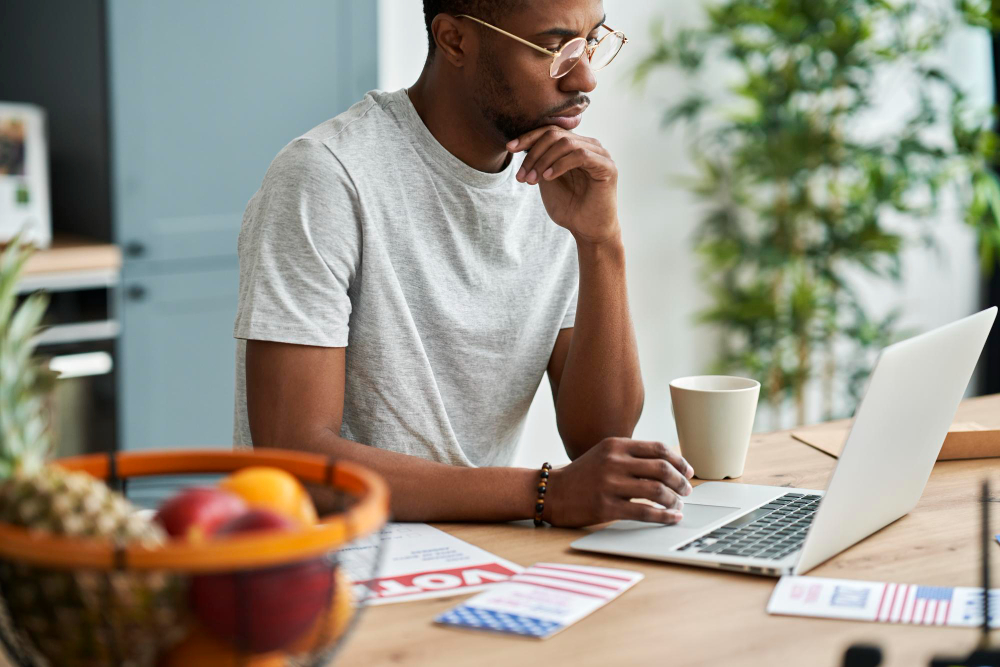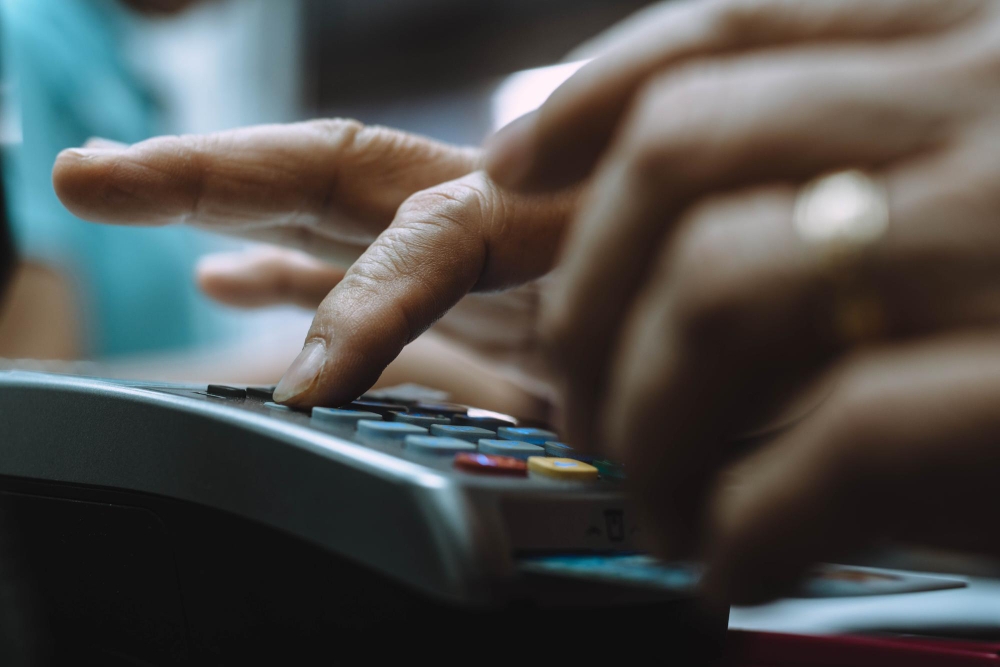The freelance economy continues to expand, with over 60 million Americans now doing freelance work according to Upwork’s annual freelance survey.
Many people wonder how to start freelancing with no experience in today’s competitive market.
Understanding how to start freelancing with no experience requires a strategic approach that builds both skills and credibility simultaneously.
This comprehensive guide will walk you through twelve proven steps for how to start freelancing with no experience, providing a clear path from identifying your skills to landing your first paying clients.
The challenge of how to start freelancing with no experience can feel overwhelming, but countless successful freelancers began exactly where you are now.
Learning how to start freelancing with no experience is about leveraging transferable skills, building a portfolio strategically, and approaching the market with realistic expectations.
Whether you want to freelance full time or as a side hustle, these steps will help you build a foundation for a sustainable freelance business regardless of your current experience level.
1. Identify your marketable skills

The first step in learning how to start freelancing with no experience involves taking inventory of the skills you already possess.
Many people underestimate their existing abilities that have value in the freelance marketplace.
Assess your transferable skills
Make a comprehensive list of skills you’ve developed through jobs, hobbies, education, or volunteer work. Include both hard skills like writing or design and soft skills like communication or project management.
Consider which tasks people often compliment you on or ask for help with. Identify activities where you lose track of time because you enjoy them so much.
This skill assessment is crucial for understanding how to start freelancing with no experience because it reveals your starting point.
Many beginners focus on what they lack rather than what they already bring to the table, but successful freelancing begins with leveraging existing capabilities while developing new ones.
Research market demand for your skills
Investigate which of your skills align with current freelance market needs. Browse freelance platforms to see what services clients are actively seeking.
Identify skills that can be packaged as specific services rather than general abilities. Consider how you might combine multiple skills to create unique service offerings.
This market research provides direction for how to start freelancing with no experience by connecting your capabilities with client needs.
Understanding what services businesses are actually buying helps you position yourself effectively even without an extensive portfolio or track record.
2. Choose your starting service

Once you’ve identified your skills, the next step in how to start freelancing with no experience is selecting a specific service to offer.
Specializing initially helps you stand out and build expertise more quickly.
Select a beginner friendly service
Choose a service that has relatively low barriers to entry but sufficient demand. Consider services that don’t require significant upfront investment in equipment or software.
Pick something you can learn quickly through online resources or short courses. Ensure the service matches both your interests and market needs.
This service selection is fundamental to how to start freelancing with no experience because trying to offer too many services dilutes your marketing efforts.
A focused approach allows you to develop expertise more rapidly and present yourself as specialized rather than generic.
Define your service package clearly
Create a clear description of what your service includes and, just as importantly, what it doesn’t include. Determine what deliverables clients will receive for your standard offering.
Establish reasonable boundaries around revisions, communication, and project scope. Set a clear timeline for how long your service typically takes to complete.
This service definition is essential for how to start freelancing with no experience because it creates professionalism from the beginning. Clearly defined services help clients understand what they’re purchasing and prevent scope creep that can derail early projects.
3. Build your initial portfolio

Creating a portfolio is one of the biggest challenges when learning how to start freelancing with no experience. Without client work to showcase, you need to develop samples that demonstrate your capabilities.
Create spec work and personal projects
Develop 3 5 portfolio pieces that represent the type of work you want to be hired for. Create samples that solve real problems or address actual needs rather than generic exercises.
Approach local nonprofits or small businesses about doing pro bono work in exchange for testimonials and portfolio pieces. Participate in online challenges or competitions that produce portfolio worthy work.
This portfolio development addresses the classic catch 22 of how to start freelancing with no experience: you need experience to get clients, but you need clients to get experience.
Strategic portfolio building creates the evidence potential clients need to feel confident hiring you despite your limited track record.
Showcase your portfolio effectively
Choose a simple, clean platform to display your work, such as a free website builder or portfolio platform. Write compelling case studies that explain your process and thinking behind each piece.
Include any positive feedback or results your work generated, even for pro bono projects. Ensure your portfolio is easy to navigate and view on mobile devices.
This portfolio presentation is crucial for how to start freelancing with no experience because it demonstrates professionalism beyond your limited client history. A well presented portfolio can compensate for lack of extensive experience by showing your approach to work and quality standards.
4. Set up your freelance foundation

Understanding how to start freelancing with no experience includes establishing the basic infrastructure of your freelance business. Proper setup from the beginning prevents problems as you grow.
Establish your professional identity
Decide whether to use your own name or create a business name for your freelance work. Set up a professional email address using your name or business name.
Create consistent profiles across relevant platforms and social media. Develop a brief professional bio that explains what you do and who you help.
This identity creation is important for how to start freelancing with no experience because it helps you present professionally despite being new to freelancing.
A cohesive professional identity builds credibility and makes you more memorable to potential clients.
Set your initial rates strategically
Research what other entry level freelancers charge for similar services in your market. Consider offering introductory rates to your first few clients in exchange for testimonials.
Choose between hourly, project based, or package pricing based on what works best for your service.
Be prepared to explain your pricing based on the value you provide rather than just time spent.
This pricing strategy is challenging but essential for how to start freelancing with no experience.
While you may need to start with lower rates, avoid underpricing yourself so severely that you can’t sustain your business or attract serious clients.
5. Find your first clients

Knowing how to start freelancing with no experience means understanding where and how to find those crucial first clients who are willing to take a chance on a beginner.
Leverage your existing network
Inform friends, family, and professional contacts about your new freelance services.
Be specific about what you’re offering and who you want to help.
Share your new venture on social media with a clear call to action. Ask satisfied contacts for testimonials or referrals even if they don’t become clients themselves.
This network leveraging is often the most effective approach for how to start freelancing with no experience because people who already know and trust you are more likely to hire you or refer you to others.
Your personal network can provide those crucial first projects that build your confidence and portfolio.
Utilize beginner friendly platforms
Create complete, professional profiles on freelance platforms known for being welcoming to newcomers. Start with smaller projects to build your platform reputation and reviews.
Write personalized proposals that address the client’s specific needs rather than using templates. Be responsive and professional in all platform communications.
This platform strategy offers practical pathways for how to start freelancing with no experience when your personal network doesn’t yield clients.
While platform work often pays less initially, it provides valuable experience, testimonials, and the confidence that comes from completing paid projects.
6. Create a simple marketing plan

Learning how to start freelancing with no experience requires basic marketing to attract potential clients.
A simple, consistent marketing approach helps overcome the visibility challenges faced by new freelancers.
Develop your core marketing message
Create a clear statement explaining what you do, who you help, and what results you deliver. Adapt this message for different contexts like social media bios, email introductions, and website copy.
Ensure your messaging focuses on client benefits rather than just describing your services. Test different versions of your message to see what resonates with potential clients.
This messaging development is crucial for how to start freelancing with no experience because it helps you communicate your value clearly despite lacking an impressive track record.
Strong messaging can compensate for limited experience by focusing on the outcomes clients care about.
Implement consistent visibility strategies
Choose 1 2 marketing channels that align with where your potential clients spend time. Commit to regular activity on these channels rather than sporadic efforts.
Share valuable content that demonstrates your knowledge rather than just promoting your services. Engage with other professionals in your industry to expand your network organically.
This consistent marketing addresses the visibility challenge of how to start freelancing with no experience.
Regular, valuable presence helps build familiarity and trust with potential clients, making them more comfortable hiring you when needs arise.
7. Master client communication

Effective communication is especially important when learning how to start freelancing with no experience because it builds client confidence in your professionalism and reliability.
Establish clear communication practices
Respond to inquiries and messages promptly, ideally within 24 hours. Set expectations upfront about your availability and preferred communication methods.
Confirm project details in writing to ensure mutual understanding. Provide regular updates on project progress without waiting for clients to ask.
These communication practices are essential for how to start freelancing with no experience because they demonstrate professionalism that compensates for limited experience. Clients often forgive newness when communication is clear, responsive, and proactive.
Learn to ask the right questions
Develop a standard questionnaire or discovery process for new projects. Ask clarifying questions to fully understand client needs and expectations.
Confirm deadlines, budgets, and key requirements before starting work. Don’t hesitate to ask for clarification when instructions are unclear.
This question asking skill is valuable for how to start freelancing with no experience because it ensures you deliver what clients actually want.
Well considered questions demonstrate your engagement and problem solving approach, building client confidence in your work.
8. Deliver exceptional first projects

Your initial projects are critical when learning how to start freelancing with no experience because they generate the testimonials and case studies that will attract future clients.
Exceed expectations on early projects
Submit work before deadlines when possible to demonstrate reliability. Add unexpected value through extra attention to detail or additional insights.
Ensure your deliverables are polished and professional in presentation. Follow up after project completion to ensure client satisfaction.
This exceptional delivery is crucial for how to start freelancing with no experience because outstanding work on early projects generates the social proof needed to overcome objections about your newness.
A delighted client is more likely to provide a glowing testimonial and refer others to you.
Gather testimonials and case studies
Request specific feedback upon project completion rather than waiting for clients to offer it. Ask satisfied clients if they’d be willing to provide a testimonial you can use in your marketing.
Create simple case studies from successful projects that show your process and results. With permission, showcase this social proof prominently in your portfolio and marketing materials.
This feedback gathering completes the cycle of how to start freelancing with no experience by transforming completed work into marketing assets. Each positive client experience becomes evidence that helps you secure progressively better projects.
9. Develop productive work habits

Establishing effective work routines is essential for how to start freelancing with no experience because you need to maximize productivity while building your business.
Create a dedicated workspace
Set up a specific area for work, even if it’s just a corner of a room. Minimize distractions in your workspace to support focused work time.
Establish boundaries with household members about your work hours and availability. Invest in basic ergonomic considerations to maintain physical comfort during work sessions.
This workspace creation supports how to start freelancing with no experience by creating physical and mental separation between work and personal life.
A dedicated workspace helps you transition into professional mode despite working from home.
Implement time management techniques
Use the Pomodoro Technique with the Focary timer to maintain focus during work sessions. Schedule specific blocks of time for different types of work, including business development.
Set clear daily goals to maintain momentum and measure progress. Track your time initially to understand how long different tasks actually take.
These time management practices are vital for how to start freelancing with no experience because they create structure when you lack external accountability.
Effective time use ensures you’re making progress on both client work and business building activities.
10. Price your services appropriately

Determining what to charge is one of the biggest challenges when figuring out how to start freelancing with no experience. Strategic pricing helps you attract clients while establishing your value.
Research market rates
Investigate what other freelancers with similar experience levels charge for comparable services. Understand the range of pricing in your market from entry level to expert.
Consider value based pricing where appropriate rather than just time based pricing. Factor in your business expenses when determining your minimum acceptable rate.
This market research provides context for how to start freelancing with no experience with realistic pricing expectations.
Understanding market rates prevents you from both undercharging significantly and pricing yourself out of consideration for entry level projects.
Develop a pricing strategy
Consider offering package pricing that bundles services at set rates. Create tiered options that provide choices for different client budgets.
Be prepared to explain how your pricing reflects the value you provide. Include clear terms about revisions, additional services, and payment schedules.
This strategic approach to pricing is important for how to start freelancing with no experience because it positions you as professional rather than desperate.
Even as a beginner, presenting options rather than just hourly rates demonstrates business thinking that clients appreciate.
11. Manage your mindset

The psychological aspect of how to start freelancing with no experience is often overlooked but critically important.
Managing your mindset helps you persevere through the inevitable challenges of starting a freelance business.
Develop resilience
Expect some rejection and don’t take it personally when you don’t land every project. View setbacks as learning opportunities rather than failures.
Celebrate small wins and progress rather than focusing only on major milestones. Maintain perspective that building a business takes time and consistent effort.
This resilience building is crucial for how to start freelancing with no experience because early freelancing involves more rejection and uncertainty than established careers.
Mental toughness helps you persist through the difficult early stages when results may be slow to materialize.
Combat imposter syndrome
Acknowledge that many successful freelancers started with no experience. Focus on the value you provide rather than comparing yourself to experts.
Remember that clients hire you to solve their problems, not based on your years of experience. Keep a file of positive feedback to review when doubts arise.
This mindset management is essential for how to start freelancing with no experience because self doubt can paralyze your marketing efforts.
Recognizing that imposter syndrome is common among beginners helps normalize these feelings without letting them dictate your actions.
12. Plan for continuous improvement

The final step in learning how to start freelancing with no experience is establishing habits of ongoing learning and refinement.
The most successful freelancers treat their development as an ongoing process.
Systematize learning
Dedicate regular time to developing new skills relevant to your services. Analyze completed projects to identify areas for improvement.
Seek feedback from clients and implement suggestions for future work. Stay current with industry trends and best practices in your field.
This learning commitment completes your understanding of how to start freelancing with no experience by ensuring continuous growth.
The rapid skill development in your early freelancing months can significantly accelerate your progression from beginner to competent professional.
Refine your business processes
Regularly review what’s working and what isn’t in your business operations. Systematize repetitive tasks to increase efficiency over time.
Develop templates for common proposals, contracts, and communications. Gradually raise your rates as you gain experience and confidence.
This process refinement is the advanced stage of how to start freelancing with no experience, focusing on optimization rather than just survival.
As you complete projects, you’ll identify opportunities to work more efficiently and deliver greater value to clients.
Learning how to start freelancing with no experience is a journey that requires patience, persistence, and strategic action.
These twelve steps provide a comprehensive roadmap from identifying your initial skills to delivering quality work and refining your business approach.
Remember that the challenge of how to start freelancing with no experience is one that countless successful freelancers have overcome by focusing on providing value and building credibility one project at a time.
Implement these steps gradually, focusing on consistent progress rather than immediate perfection. Use productivity tools like the Focary Pomodoro Timer to maintain focus during both skill development and client work sessions.
The path of how to start freelancing with no experience has its challenges, but with commitment to learning and professional service, you can build a sustainable freelance business that grows with your expanding skills and experience.
Your journey of how to start freelancing with no experience will have moments of doubt and frustration, but each small success builds momentum.
With consistent effort and a willingness to learn from both successes and setbacks, you can transform your initial steps into a rewarding freelance career that offers increasing freedom, flexibility, and fulfillment.
Ready to stop being distracted and start achieving your goals?
Start your first Web Pomodoro session with Focary App today and reclaim your focus.
Start Focusing Now